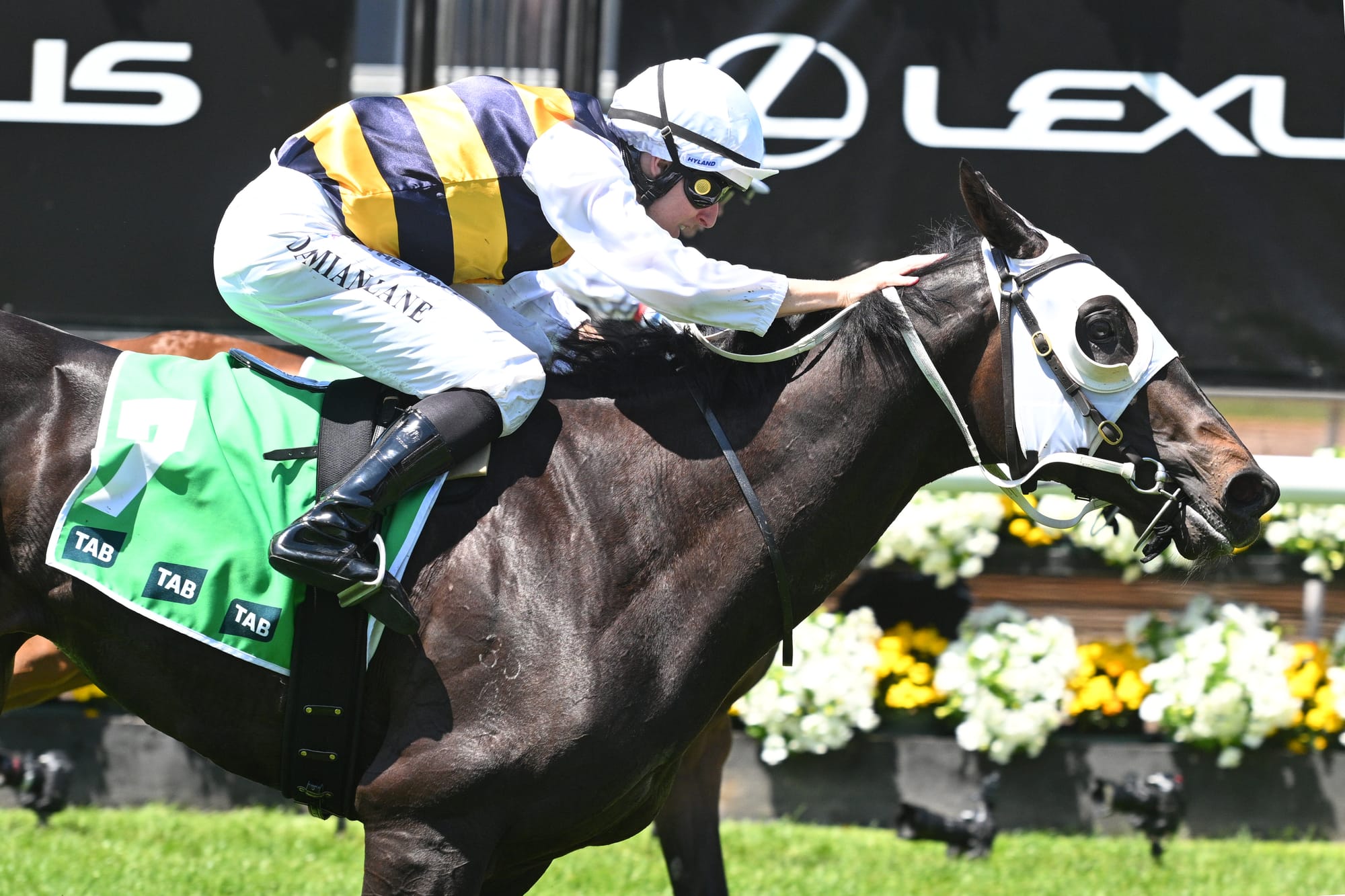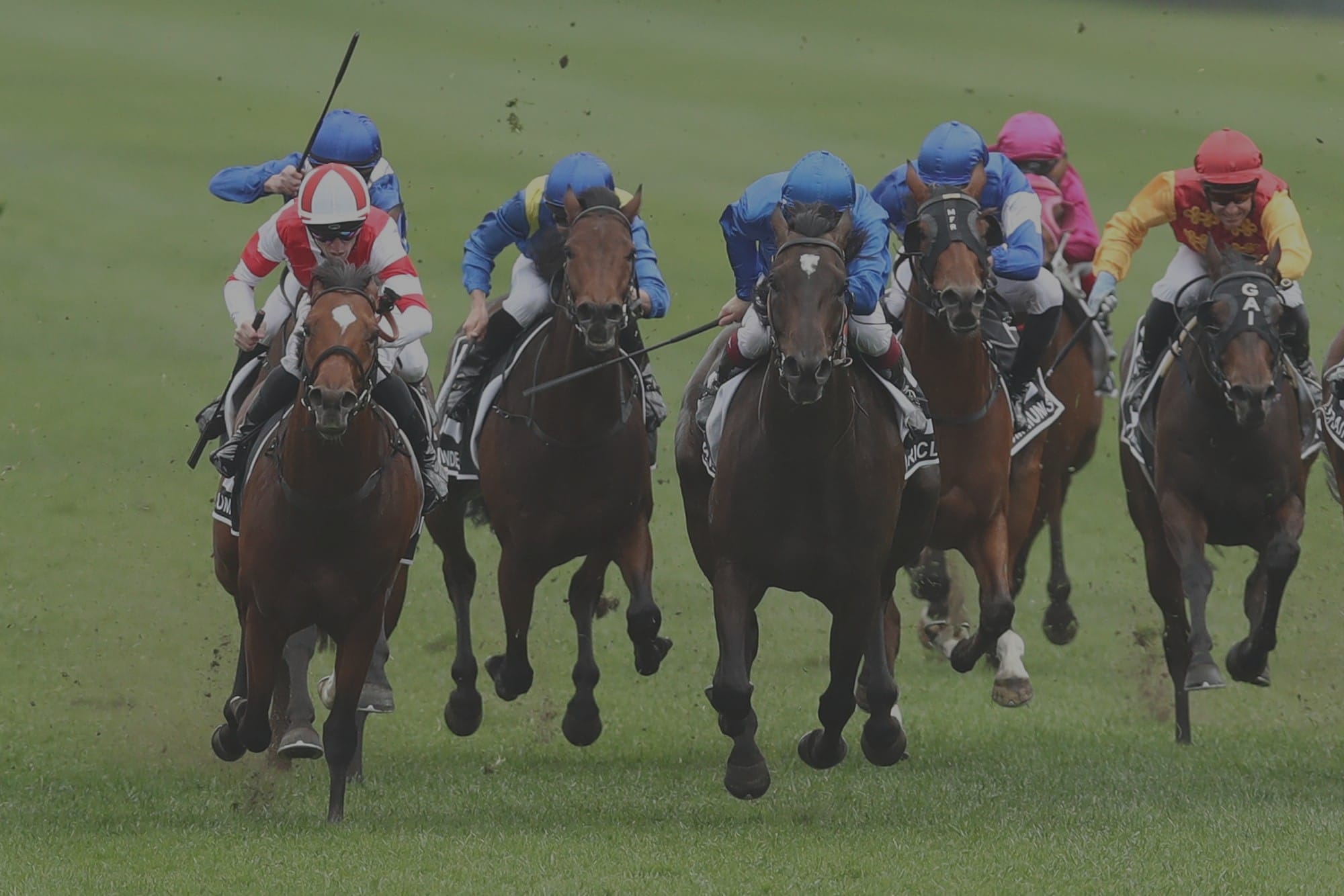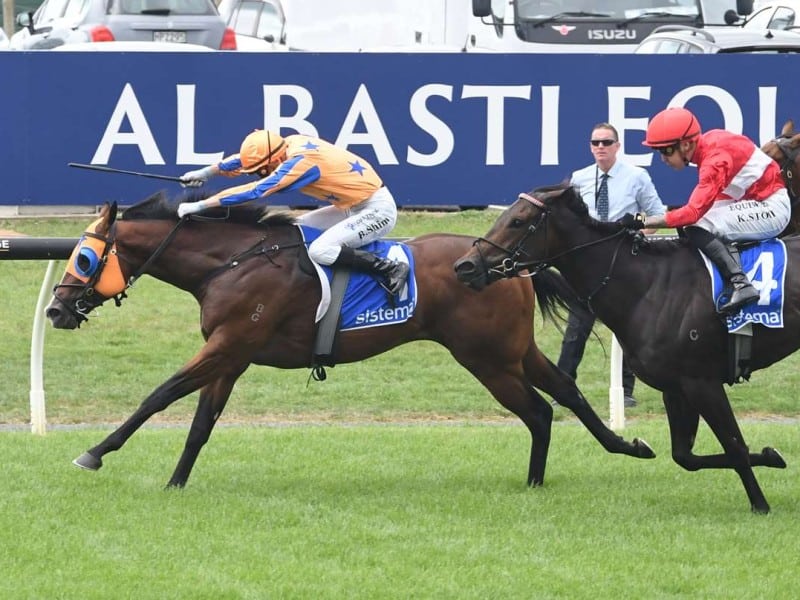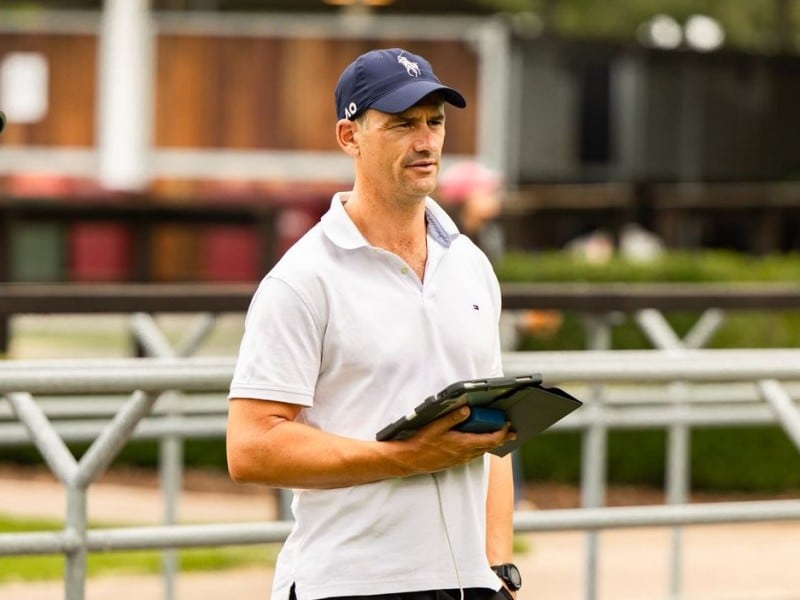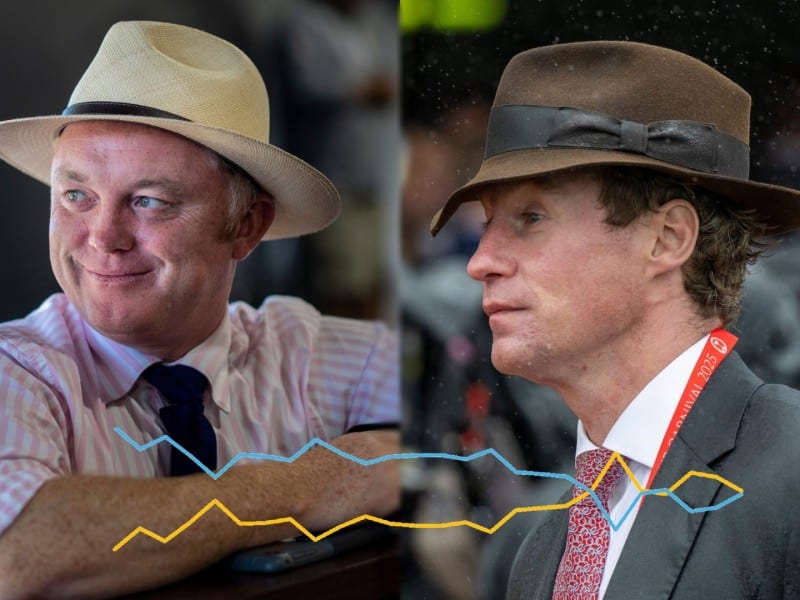OTI Racing finds its Knight in shining armour for Prix de l’Arc de Triomphe
In an all-encompassing search to find another Melbourne Cup horse, Terry Henderson will happily put that ambition aside to absorb the occasion of having a runner in one of the world’s most prestigious races.
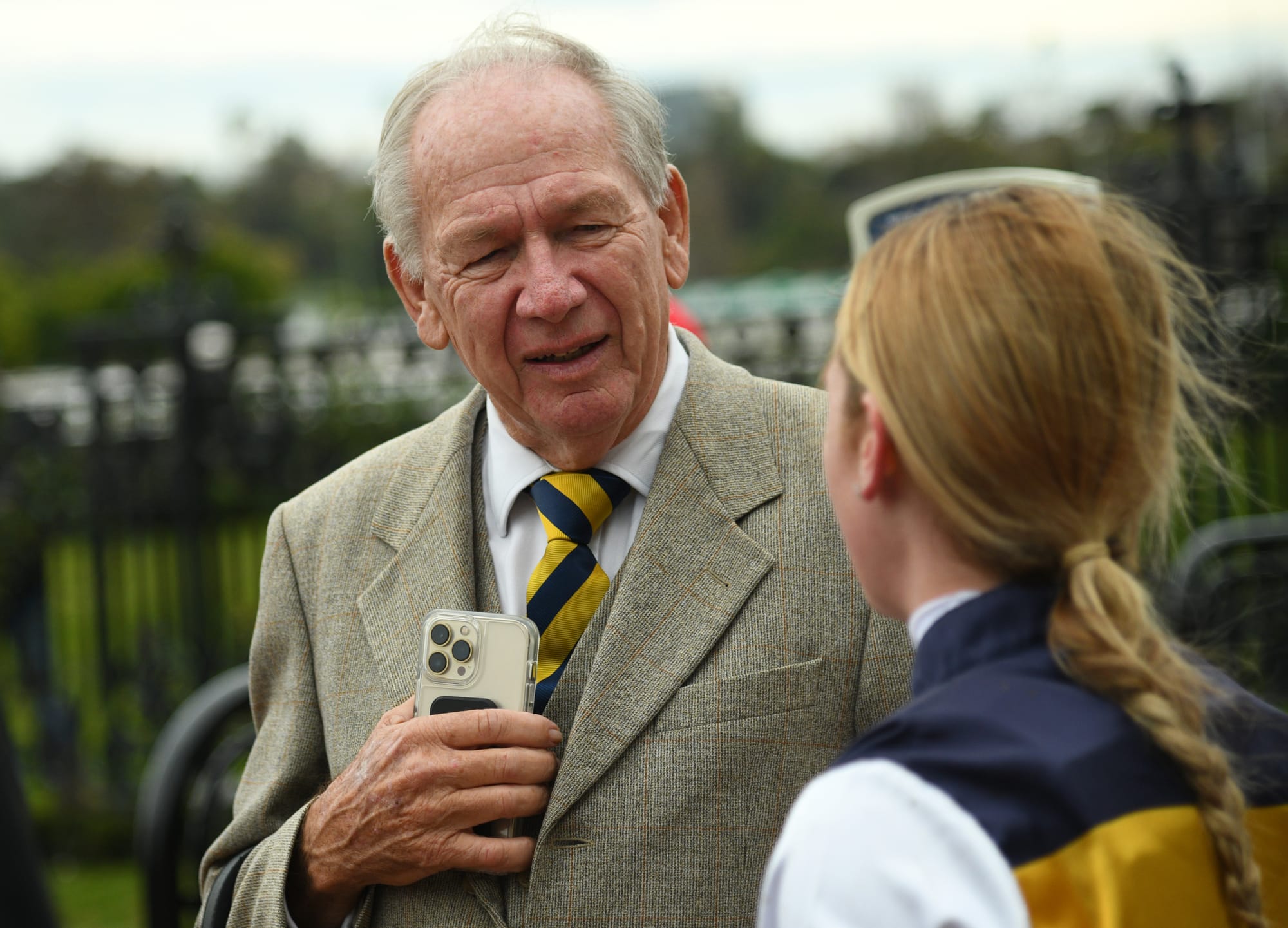
Sevenna’s Knight was looking likely to be OTI Racing’s Melbourne Cup ace until he raced his way out of the reckoning for Flemington and into contention for Longchamp.
Since returning from a cameo appearance in Dubai, Sevenna’s Knight has found a depth of form in France with three wins from his past four starts that has created a pathway into the Prix de l’Arc de Triomphe, to be run this Sunday.
A forecast for soft going clinched the deal and Henderson and a bunch of his Australian owners will descend on Longchamp hoping Sevenna’s Knight can measure up against the cream of Europe’s stayers.
It won’t be easy but his trainer knows something about winning the race that is the most famous in France and historically rates up there with the best on a global scale.
Andre Fabre, the decorated French trainer, holds the record for Arc wins with the latest of his eight victories coming in 2019 and Sevenna’s Knight will be his third-string runner behind the favourite Sosie and the stable’s Group 1 winner Mqse De Sevigne.
Australia’s connection to the Arc has been mostly forged through the deeds of winning jockeys Scobie Breasley, Bill Williamson, George Moore and his son Gary.
In 2016, the Lloyd Williams-owned Order Of St George ran third in his famous navy silks for Aidan O’Brien.

The 2009 and 2010 Cox Plate winner So You Think, under the training of O’Brien following Coolmore’s purchase of a controlling interest, finished fourth in 2011 in what was a record time for the race.
So You Think went one better than Strawberry Road, an unsung trailblazer on the international stage for a syndicate that included John Singleton as its figurehead, Kerry Packer as a silent partner and John Nicholls as the horse’s trainer.
Strawberry Road ran fifth in 1984 and Singleton was in the commentary box, wishing it was Moore or Breasley in the saddle instead of English jockey Greville Starkey.
“No horse had led into the straight and won the Arc but the Pommy jockey took Strawberry Road to the front at the turn and passed all the pacemakers and faded at the end,” Singleton recalled in a 2004 interview with The Sydney Morning Herald.
“I called the race and remember saying, ‘this jockey is a genius or the greatest crook of all time’.
“It was also a bad call of the race because I only mentioned one horse.
“We stood to win millions of pounds if we won. We definitely would have run a place if we’d had an Australian jockey.”
Strawberry Road was an arc trailblazer for Australia
Besides Sevenna’s Knight, Fantastic Moon provides another Australian attachment to this year’s race.
A Group 1 winner at his most recent start in Germany, Fantastic Moon returns to Longchamp after finishing down the course in 2023 with Australian bloodstock agent Suman Hedge among the ownership group as part of the Liberty Racing syndicate.
But for Henderson, having a starter in the Arc is a watershed moment for OTI Racing.
“We’ve never had a horse run for us in the Arc and we’ve always wanted to tick that off so it’s very exciting,” Henderson told The Straight.
It’s also a reward for a meticulous approach to sourcing bloodstock that has stood the test of time, tweaked slightly to tap into French, UK and Irish pedigrees crafted on generations of stamina rather than speed.
“Our business has been built around buying going horses and it probably hasn’t changed a lot, except for the European angle,” Henderson said.
“The model is still pretty much driven by buying tried horses. We breed a few these days and we buy a few yearlings.
“But compared to the numbers we buy out of Europe and New Zealand, that part is probably less than 15 per cent.”
Sevenna’s Knight’s rise has been clinical to the point that he demanded to be kept in training in Europe instead of joining an OTI spring team for Melbourne that includes Cox Plate entry Docklands.
On the strength of his French achievements, Sevenna’s Knight would have been among this year’s Melbourne Cup favourites. But now it’s problematic if he ever races in Australia.
Sevenna’s Knight will carry a 114 international rating into the Arc, a mark that Henderson says almost ensures a competitive Group 1 career in the northern hemisphere.
“We’ll assess Sevenna’s Knight at the end of the year but he’s more than likely to stay with Andre Fabre for at least another 12 months,” Henderson said.
“Most of the horses we have over there, unless they are rated up over 110, they’re destined to come to Australia.
“If they’re rated 110 in Europe they can actually make good prize money. And they can go to Dubai which is a very easy exercise compared to coming to Australia.”
Henderson uses a well-connected European network to find horses like Sevenna’s Knight.
He likes to deal privately and while rarely seen at the horses-in-training sales that attract Australian buyers in their droves, an exception is made for France’s Arqana Arc Sale.
The sale recorded a record aggregate of almost $A16 million in 2023 for an average of $A500,000 with a top-priced lot of more than $A2 million.
“We spend a lot of time going around the stables in the early part of the year so when an Arc sale comes along, we already know most of the horses in the catalogue,” he said.
“So we might buy at an Arc sale and we might buy at a breeze-up sale because you can do a lot of work before that type of sale.
“But buying through the ring in a conventional way, I think it’s got more risk associated with it than the way we do it.”
“We spend a lot of time going around the stables in the early part of the year so when an Arc sale comes along, we already know most of the horses in the catalogue.” – Terry Henderson
The OTI way is all about attention to detail. Once a horse lands on the syndicator’s radar, nothing is left to chance.
“We put a hell of a lot of emphasis on proper due diligence,” Henderson said.
“With a private sale we can get an option to buy and I can get three or four days to do some due diligence. We do Hong Kong-standard vet assessments on all our acquisitions.”
Trade in tried European bloodstock is bullish, emerging from a sluggish market during the pandemic when Henderson found it hard to buy the right horse.
“We get calls from six o’clock in the morning until nine o’clock at night from Europe,” he says.
“It would be very rare that you don’t wake up to three or four messages that you’ve got to act on first thing in the morning.”
